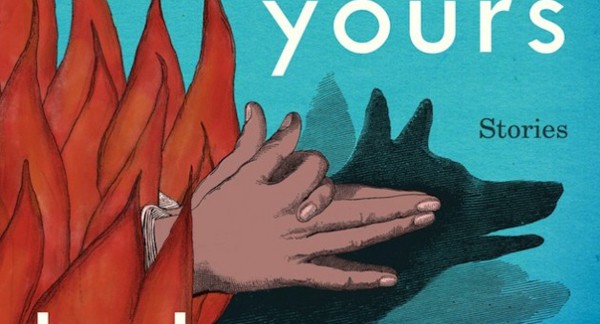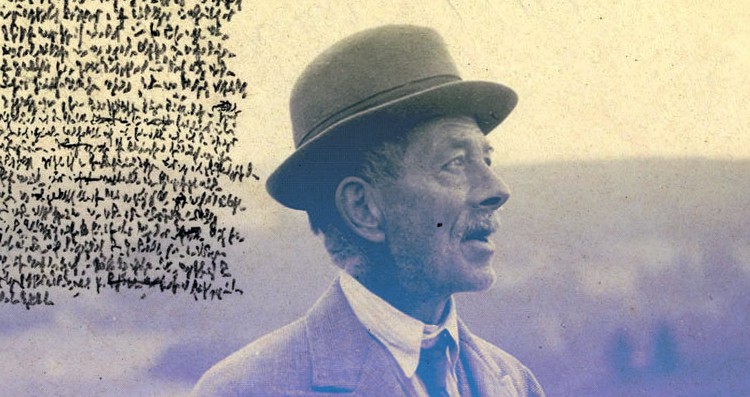essays
Helen Oyeyemi’s What Is Not Yours Is Not Yours Reveals Continued Mastery in Exploring the Real

Electric Lit is just $4,000 away from our year-end fundraising goal of $35,000! We need to hit this target to get us through the rest of 2025, and balance the budget for 2026. Please give today! DONATE NOW.
Helen Oyeyemi is one of those writers who, no matter when you discover them, makes you wish it had been long ago so you’d have extra hours left in your life to read the rest of their work. She published five novels by the time she turned thirty, and now, at the ripe old age of thirty-one, she’s coming out with a beautiful, brilliant, evocative collection of (somewhat) linked short stories. She is also, incidentally, one of those artists whom you cannot hate for such early success, not even a little tiny envious bit, because she’s clearly so, so talented.
Like its roundabout, not-actually-tautological title, What Is Not Yours Is Not Yours is a collection in which each story takes a roundabout turn, Mobius-stripping its way through its plots. Plots, plural, for no story is straightforward in that it has one beginning, one middle, and one end. Most have at least two beginnings and two middles, though the ends vary from being singular to dual to nil. Each story contains a setting that frames a fable of sorts, a fairy-tale, but an odd one, which should not be surprising to readers of Oyeyemi after her last book, Boy, Snow, Bird (Riverhead, 2014), about which she said, “retelling Snow White was what I set out to do! But I had to come at it slant because that’s how I tend to read fairy tales.”
The collection’s opening story, “Books and Roses,” for example, begins with the classic fairy tale’s “Once upon a time,” but immediately goes slant from there; instead of “in a land far, far away” or “in a royal castle” or “in a little village,” Oyeyemi completes the sentence so: “Once upon a time in Catalonia a baby was found in a chapel.” While many fables include orphans — just as much historically great literature centers around them — they don’t, in fairy tales, have such a firm root in a real place. The story continues in its vein of being part fairy tale, part realist story, a mix which makes the work truly magical.
“Playfully and exquisitely imagined,” the book’s front flap says, “What Is Not Yours Is Not Yours is an enchanting collection of linked, intertwined stories cleverly built around the idea of keys, literal and metaphorical.” While I usually regret reading press material that aims to give me a clue as to how to read literature, I do wonder whether I would have found this connection on my own, for what I observed most in the stories was a series of doors opening and shutting, their locks and keys only the necessary obstacles and tools for this movement. While “Books and Roses” contains physical keys, the next story, “’Sorry’ Doesn’t Sweeten Her Tea” contains a house full of doors that swing open and shut of their own accord unless locked. But neither story is truly about those physical doors that have locks and require keys, but rather about the characters in them discovering something new, whether it is mysterious — a connection between a young Catalan woman, Montserrat, who is “given the surname ‘Fosc,’ not just because she was black, but also because her origin was obscure’ and Lucy, ‘a painter with eyes like daybreak’ — or painfully physical — as in the second story, where the lives of a family are rocked because their youngest member Aisha is a fan of a famous singer who’s accused of beating a prostitute so badly that she makes a YouTube video showing off her bruises and asking him to apologize, a video that causes much anguish to this struggling young fan. Later in the book, we see Aisha again, all grown up, refusing to have penetrative sex with her boyfriend. A friend of his says that Aisha “just doesn’t want dick” while the narrating boyfriend wonders whether she “doesn’t want lust to be the one to lead me in.” Are we supposed to connect Aisha’s traumatic disillusionment with her favorite pop star, her first exposure to the way the internet tends to blow up at abused women, and the way celebrity manages to get away with such abuse with her later reluctance to have a specific kind of straight sex with a man? Perhaps, and perhaps she is simply allowed to have preferences about what she calls sex and how she enjoys it.
And here is where I must come to the conclusion that became clearer to me as I read: this book is incredibly queer, incredibly feminist, and beautiful for it. It normalizes queer experience in a way that doesn’t ask the reader to understand it as necessarily different, but as simply one of many kinds of lives, but so essential that it fits within the confines of fairy tales as well as any other device. The first two stories mentioned above contain, first, a pair of star-crossed women lovers and, second, a pair of men who take care of the daughters one of them has from a previous marriage to a woman. In both cases there is no explanation, no coming out story, but simply facts: Lucy is in love with Safiye, Noor is in love with Anton. In the next story, “Is Your Blood as Red as This?” Radha is in love with Myrna Semyonova, the latter a teenager studying to become a puppeteer and the former following her into this world and being wooed away by a boy who flirts quite insidiously via his puppets.
Is this realism, this world in which queerness is accepted as utterly normal, where most characters appear to have both same-sex and opposite-sex attractions, where it is not shocking for a girl’s high school boyfriend to come out as sometimes a woman who chooses the name Pepper while sometimes remaining Michael? No, this is not realism, but this doesn’t matter in the least — fairy tales have always been both reflective of and teachers of life, and Oyeyemi’s mix of modernity and fantasy creates a world in which we are free from at least some of the constraints of the “real world” in which queerness is constantly questioned.
Some of the constraints, yes, because as mentioned before, this novel is incredibly feminist, its characters and narrators largely women who interact with one another and with men in various ways that are often unconventional, such as the daughters of a father who’s now living with a man loving this man without qualms, such as a married woman going through a horrific experiment in which she hallucinates the life she and her husband could have had and a child they may have borne while also simulating the death of her spouse. The women in the stories are not the heroes of their fairy tales; they aren’t reclaiming some sort of ancient heroic right; they are simply women, with all that womanhood involves, with all that femininity takes on and rejects, and this is enough, for these women are people, their bodies and gender and sex mattering only when the society around them dictates it, which is rarer than usual. Like the stories’ queerness, their feminist tendencies aren’t beat-you-over-the-head overt, but folded into the narratives, making it incredibly normal for women to say no to men, to challenge the patriarchy, to accept men too as feeling beings even if they are inherently privileged.
Finally, a word must be said about the prose itself: spectacular. Stories contain sentences as delicious to the pallet as “To the naked eye Boudicca is a haze of noxious green that lurks among fronds of seaweed looking exactly like the aftermath of a chemical pill” and phrases as tragically funny as “The Homely Wench Society.” Stories begin surprisingly, without warning: “Well, Dornička met a wolf on Mount Radhošt’” and “As I was saying, I’m an inadequate son.” They end abruptly too, sometimes without resolution, and if we must put a realist spin on Oyeyemi’s collection, it is here most noticeable of all: in the endings, which do not always satisfy, just as in life relationships and experiences often refuse to attain closure.
Indeed, like some of her stories, Oyeyemi keeps mysteries herself: in her acknowledgements she doesn’t explain who the people she thanks are, and cites only a piece named Puppet: An Essay on Uncanny Life by Kenneth Gross as influential. We need more books like Oyeyemi’s; to challenge us, to make us think, and to remind us that it is all right, sometimes, not to know all the answers to the riddles that plague us.








